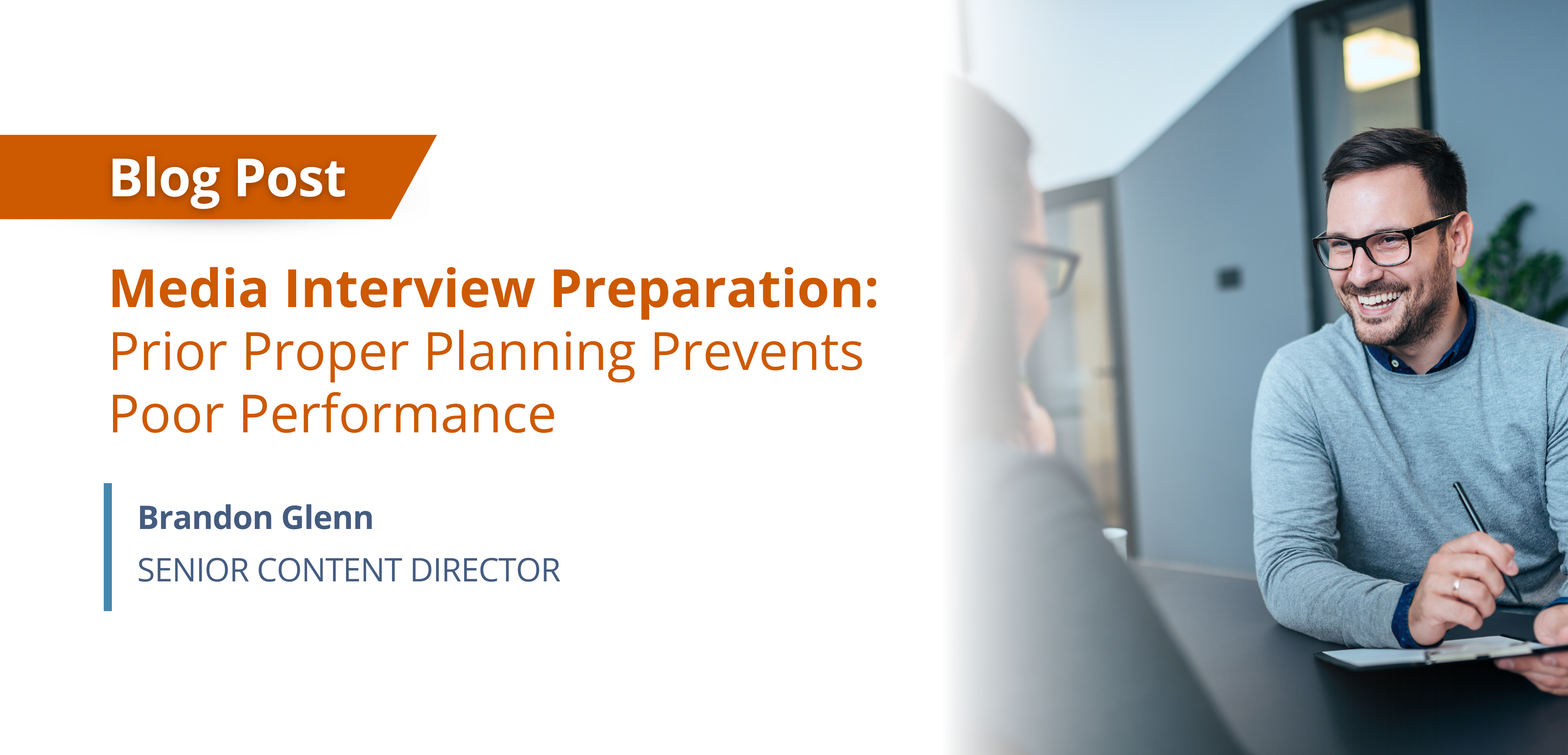You’ve done the hard work of crafting a public relations strategy, researching the right media targets, and pitching the story to journalists.
Reporters have responded positively to your pitches and are interested in setting up interviews to learn more about your company and executives’ viewpoints. Now what?
For most companies, and in particular startups, media interviews represent a valuable opportunity to introduce their stories, value propositions, and reasons for existence to a broader audience of potential customers, investors, employees, stakeholders, and other industry participants.
However, executives are sometimes hesitant to engage in interviews because they are reluctant to put in the time to mentally prepare or are fearful that reporters will ask them difficult or confusing questions.
The good news for health IT leaders is that there is little to fear. By doing a little homework and preparation prior to a media interview, executives can approach the event with calmness and confidence.
The following are four preparation tips to ensure media interview success:
Turnabout is fair play: Once the interview starts, the reporter will ask many questions of you. Before the interview, take advantage of the opportunity to gain clarity about reporters’ intentions by turning the tables and asking them a few questions. Who is the publication’s audience? What is the reporter interested in talking about? Will she share a list of questions prior to the interview? Do your diligence to make sure the opportunity is worth the time.
Get to know the reporter: Take some time to perform a little pre-interview research about the reporter, browsing through her bio or LinkedIn profile. Read through some of the articles she’s previously written. By getting a feel for the reporter’s background and interests, executives gain fodder for rapport-building pre- and post-interview small talk, demonstrate that they value the reporter’s time and work, and set the stage for follow-up coverage.
Craft talking points: As the one asking the questions, the reporter is generally in control of the interview, but that doesn’t mean that the interview subject is merely along for the ride and must go wherever the reporter steers the conversation. Executives should come prepared with a few basic talking points that expound upon the problems they solve, the negative consequences of those problems for their customers, and why their solution is the right choice to solve these problems. Talking points should be quick, straightforward, and conversational. Repetition of key points is encouraged.
Follow-up and promotion: During interviews, executives often make points or cite statistics that require further clarification or verification by reporters. Be sure to follow up to see if the reporter needs any further information. After the article goes live, promote it through all available channels, including social media, company blog, website, and email to customers and prospects.
Unless your company is an industry giant or a household name, opportunities for media interviews don’t come along that often. When they do, set yourself up for success by investing the necessary time and effort into interview preparation.
For more media interview preparation tips, check out this post from my colleague Philip Anast.
